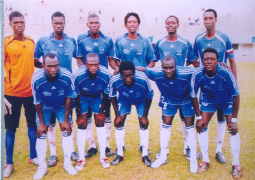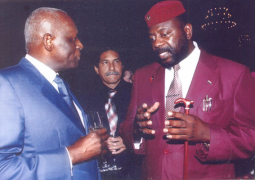It has always been disturbing and, in fact, totally incomprehensible that while the rest of the world is fighting tooth and nail in trying to contain the much-talked about financial crisis hitting the world, the continent of Africa, especially
From
In
One person reportedly died on Sunday after a demonstration to condemn Friday’s tear-gas incident in
Senegalese Interior Minister Ousmane Ngom reportedly apologised after a tear gas canister went off inside a mosque, where people were praying on Friday.
In
The surge of fighting in an area already struggling to tackle the presence of local al Qaeda agents had raised concerns that the election might have to be postponed. The first round is due on April 29.
Also there have been reports of a major rebel group in
The group said they are holding the UNAMID soldiers because they entered its territory without permission and because they were accompanied by three Sudanese it suspects work for the security services.
Elsewhere, Libyans have been marking the anniversary of the uprising that led to the overthrow of Col Muammar Gaddafi, after his rule of more than 40 years.
Celebrations have been taking place across the country, including in the capital
But the anniversary comes amid fears of continuing instability in the country.
Hundreds of militias are roaming the country unimpeded, and observers point to an institutional void.
The entire African continent is yearning for peace and nothing else. We have lost many of our loved ones in the continent, and any action that can create another trouble must be urgently tackled.
The story of President Wade is both shocking and worrying. Long before he became president, Wade had been a dominant opposition figure, who made both Leopold Sedar Senghore and Abdou Diouf have sleepless nights through his polemics, so much so that the Senegalese people decided to give him a chance in 2000.
But it looks as if democracy, as we know it, is at a crossroads in Africa because it is now endemic on the continent for incumbents to try one ruse or another to hang on to power.
Being one of the architects of NEPAD, a formula designed to liberate the continent from retrogressive forces, we urge President Abdoulaye Wade to reconsider his ambition on more counts than one, and put the interest of the Senegalese people on top of his own interest and that of the few people around.
While we appreciate the ongoing efforts made by the ECOWAS, the AU and other international organizations for peace to prevail in
“I dream of an
Nelson Mandela



